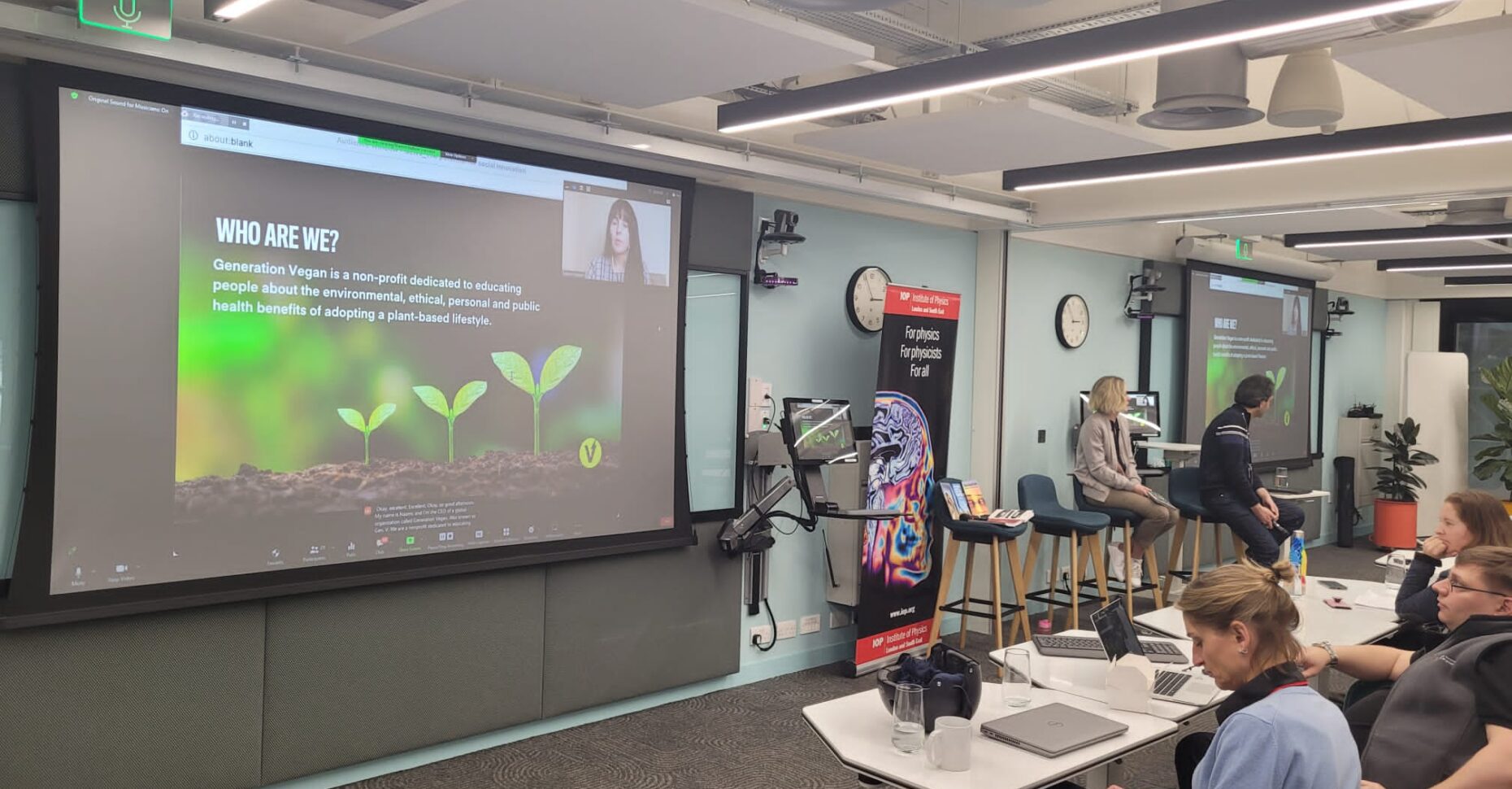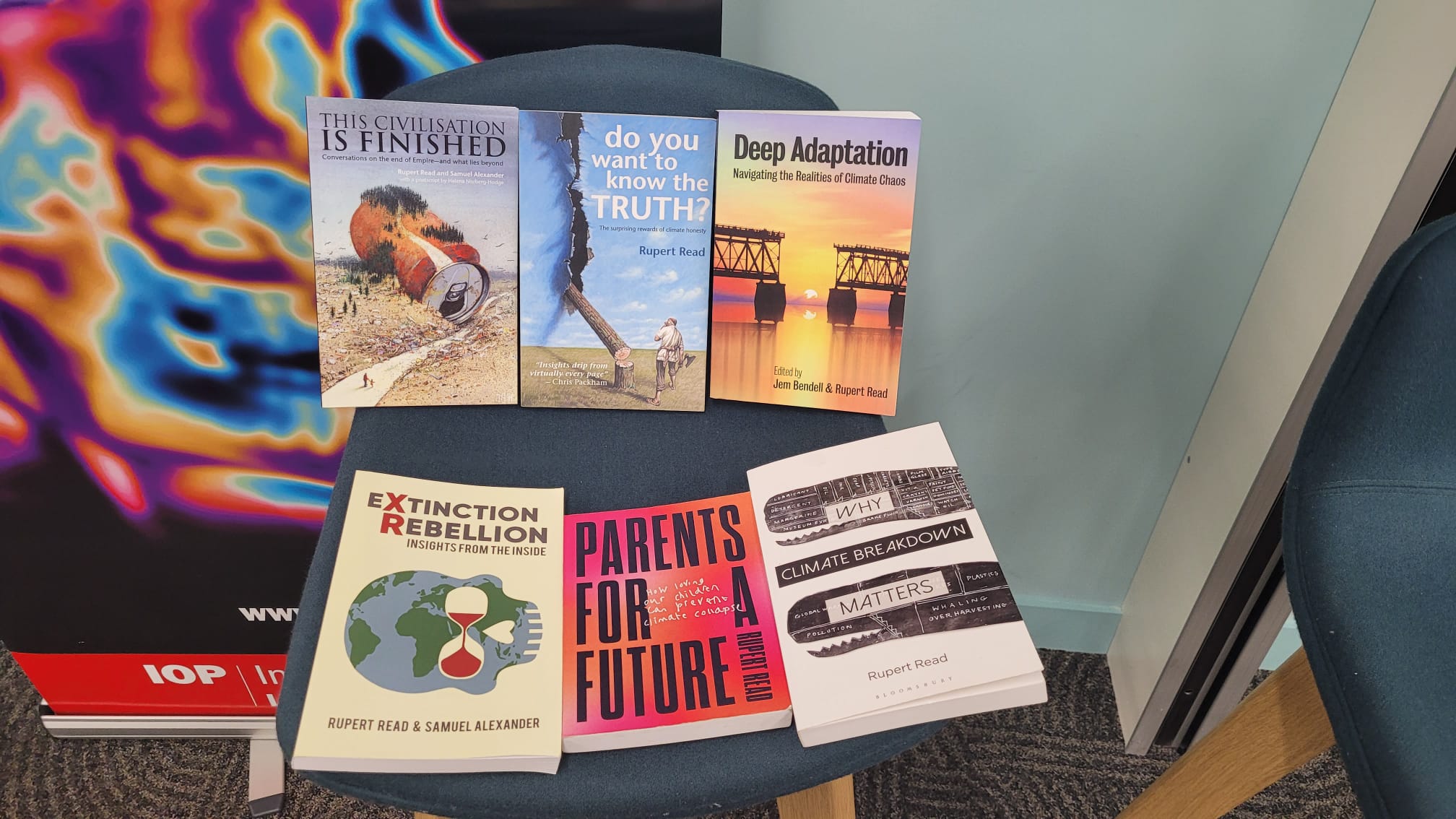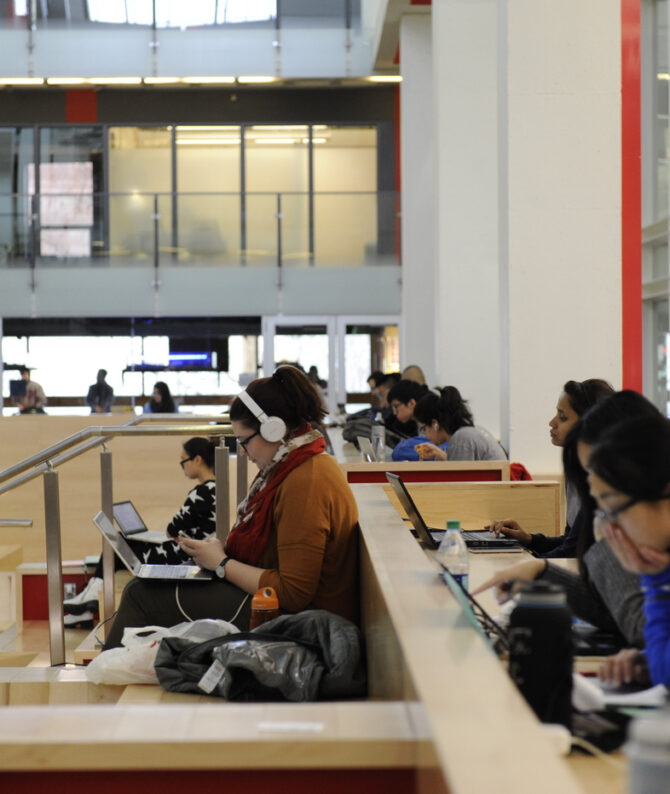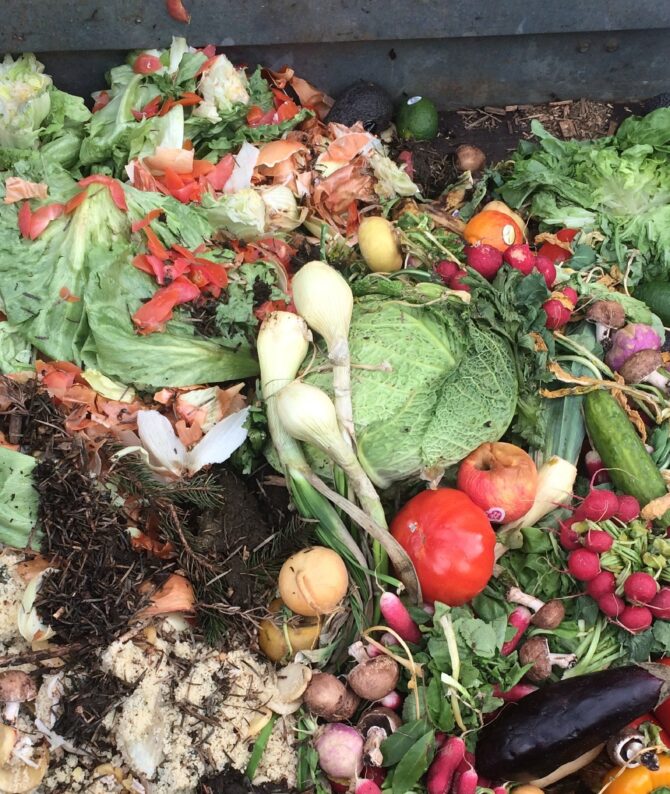Activists, Entrepreneurs, Academics and More Gather in London to Discuss the Fossil Fuel Issue

Fossil fuels are a ubiquitous part of life. From heating homes, factories and hospitals to fueling cars, they are as pervasive as they are dangerous. To transition to clean energy, people from all walks of life are needed, which was part of the goal of a recent conference on Northeastern’s London campus.
With 18 speakers across a broad range of disciplines and expertise, two keynote speaker sessions, two panels and a series of short talks, attendees walked away with new ideas and a fresh perspective on the climate crisis.
“We wanted everyone to be involved because, that’s how you start — raise awareness first and then you give people ideas about what they can do,” Crowe said. “We have to start a dialogue and then change will happen.”
Devon House in London hosted the event on April 21st, though it was also available virtually, as are recordings of all the sessions.
It was organized by two Northeastern London faculty members, Sabina Crowe and James Kneller. Sabina Crowe is an economics professor with an interest in sustainability. She did her PhD in sustainable food consumption in China and carries ideas of sustainability into her classes. James Kneller is a physicist and professor who researches renewable energy, specifically working in developing new models of solar panels. With a shared passion for sustainability, the two decided to host the conference together and teamed up with keynote speaker, Professor Jennie Stephens, in determining the specific focus on fossil fuel phaseout.
 |
Northeastern’s London campus has a focus on sustainability research, and according to Crowe, there is a new research cluster on globalization and sustainability. There is also a master’s degree in digital politics and sustainable development. Both Crowe and Kneller acknowledge there is a great interest in the topic from students. Kneller spoke about how his students asked him to stop giving them paper handouts because it is not sustainable.
After the conference, Kneller said that the goals of networking were achieved, two attendees told him that they were starting a new research project together related to renewable energy after sharing ideas at the conference. The organizers hoped that the event could put Northeastern’s London campus on the map as a sustainability research hub and center of innovation.
During the event, all food served was vegetarian or vegan and there were no plastic cups or plates. Crowe’s goal is to make the conference an annual event and get more departments from other campuses involved. The conference was endorsed by the United Nations Educational Scientific and Cultural Organization’s (UNESCO) International Year of Basic Sciences for Sustainable Development (IYBSSD), sponsored by the Climate Justice and Sustainability Hub and, thanks to Kneller’s support and expertise, the UK-based Institute of Physics.
The first keynote speaker was Northeastern professor Jennie Stephens, who is a professor and expert on sustainability and climate resilience and the author of “Diversifying Power: Why We Need Antiracist, Feminist Leadership on Climate and Energy.” Stephens spoke about the need for a paradigm shift in thinking regarding fossil fuels and encouraged attendees to embrace their power of creativity and imagination. Additionally, power imbalances and the structures that perpetuate them were a key takeaway from her lecture.
“The people who are benefitting from the current system, they’re contributing most to the climate crisis, and they are strategically resisting a transition away from fossil fuels and they have been for decades,” Stephens said.
 |
Stephens said that one necessary solution is to think about not only innovation but exnovation, which she describes as paying attention to the built-in systems and how to extract ourselves from harmful and exploitative systems. Ultimately, she encouraged everyone to engage with a paradigm shift and use their knowledge and resources to get involved however they can.
The next section was a series of short talks by researchers and professors about plastics, fossil fuels and innovation. Sian Sutherland, co-founder of a Plastic Planet, described plastic as the “visible canary in the coal mine of the climate crisis.” She told attendees how recycling is a diversion tactic and is not nearly as effective as people believe. By educating the public about the undeniable and enormous issues plastic causes, she hopes to encourage more people to make a change and encourage industry stakeholders to do so as well.
Other panels explored the need for social innovation and global cooperation in solving the climate crisis. Leah Bamberger, Executive Director of the Climate Justice and Sustainability Hub, spoke in a panel alongside Naomi Hallum an advocate for the vegan lifestyle, Jo Weston, a professional in ethical advertising and a philosophy professor. Discussions centered around consumer responsibility and the dangers of greenwashing, which is advertising that falsely inflates a company’s environmental efforts and is used to target consumers that may want to support companies with a focus on sustainability.
The final speaker was Tzeporah Berman, who is the chair and founder of the Fossil Fuel Non-Proliferation Treaty initiative which lobbies for the end of fossil fuel expansion and infrastructure and for a just transition to clean energy that is equitable, diversified and accessible. While people and corporations may recognize the harm of drilling for oil and burning natural gas, ultimately if there is no limit on infrastructure of fossil fuels, there will be no change. Her organization encourages academics, politicians, corporations and entire cities to move towards a future that is less reliant on fossil fuels.
The ultimate message of the conference was one of hope. Each speaker brought a unique idea, solution or perspective on how the future can be shaped for the better, and both organizers felt energized by all the bright minds in the room. The perspective that large corporations and governments need to make strides towards progress and that individuals can make changes in their own lifestyle were represented to provide a comprehensive set of solutions.
“We can all play a role even if it’s a small role,” Crowe said. “It all aggregates, [it] all compounds and then we can see actual change from that.”
Written by Renée Abbott, May 30th, 2023



